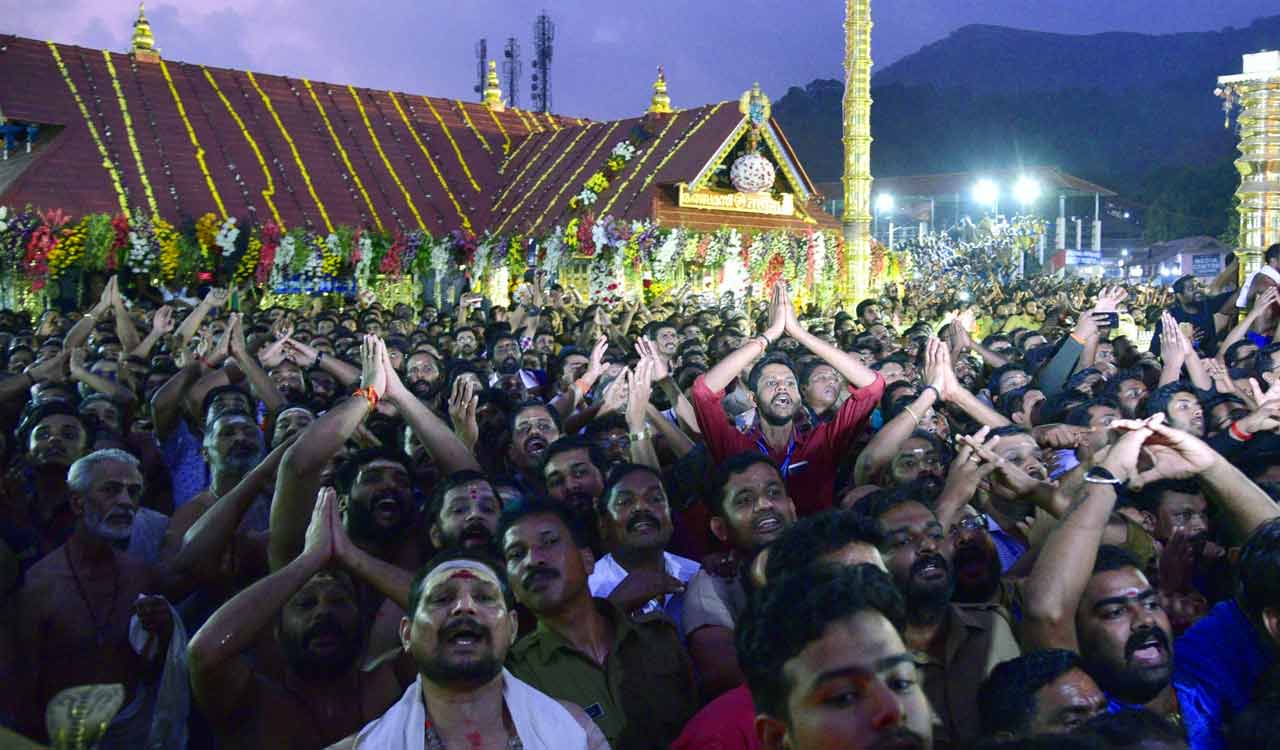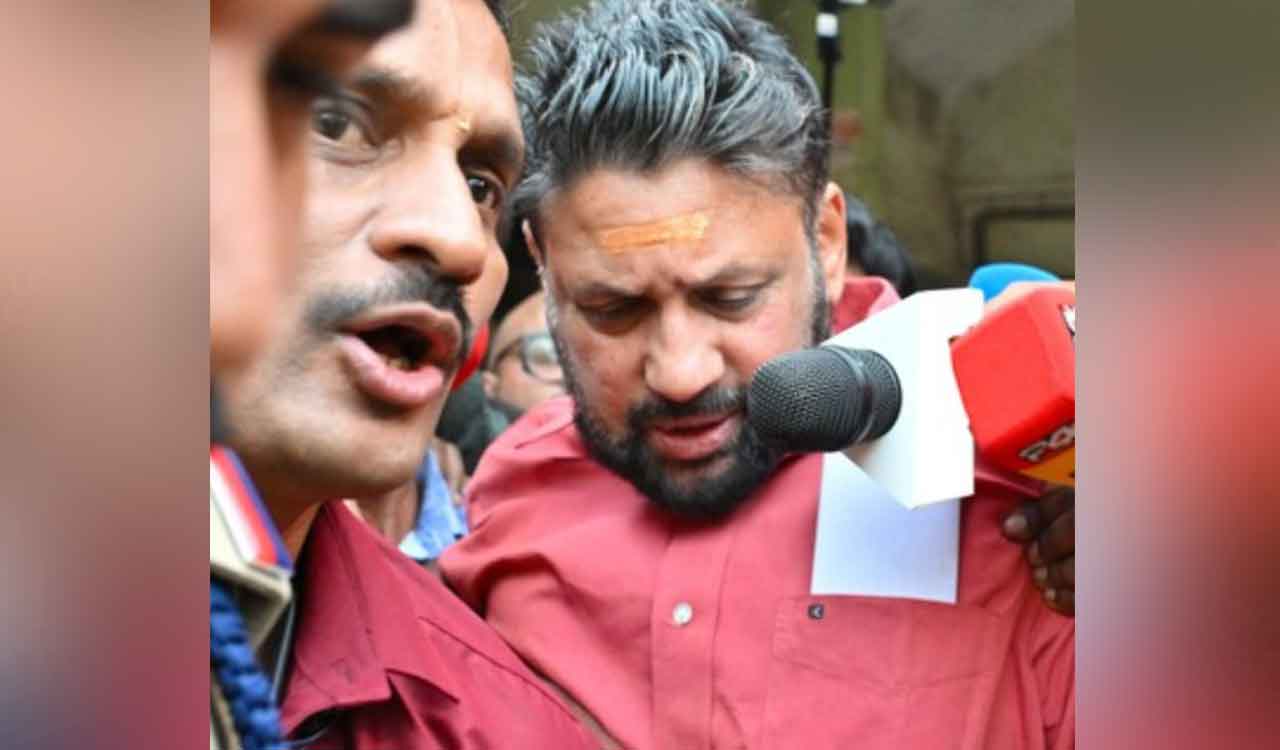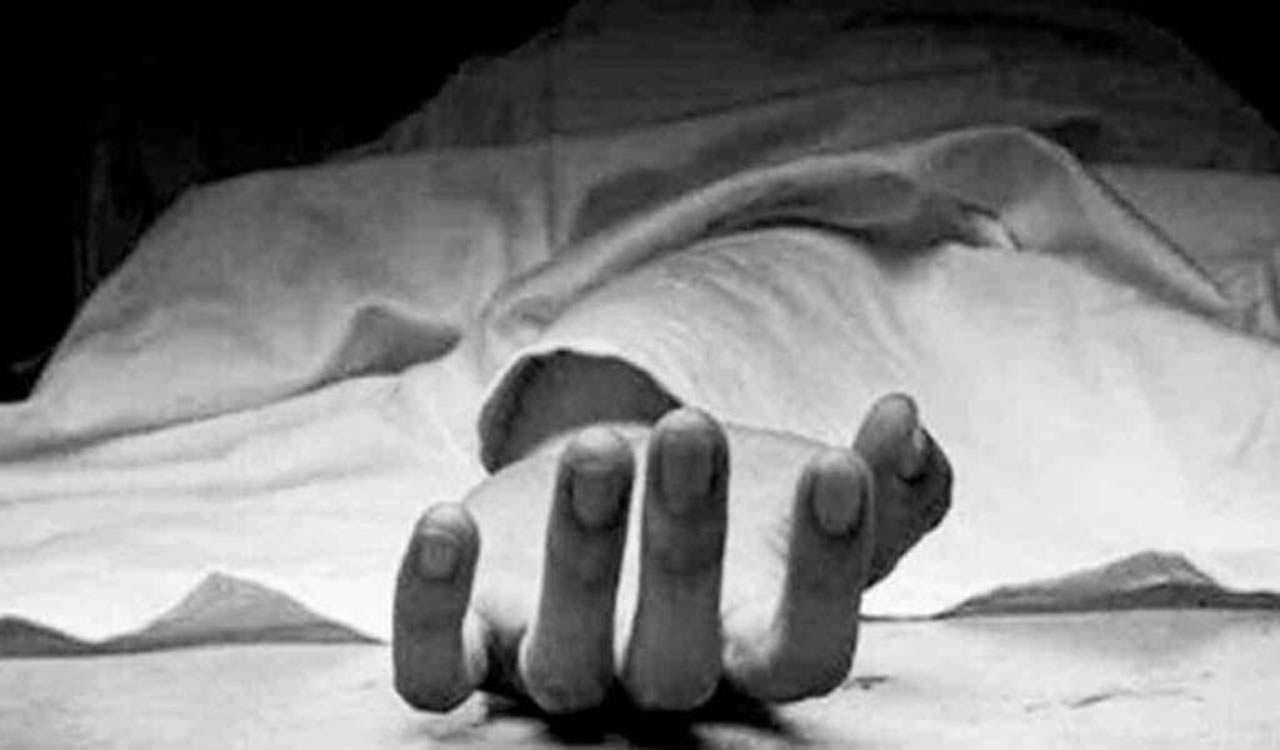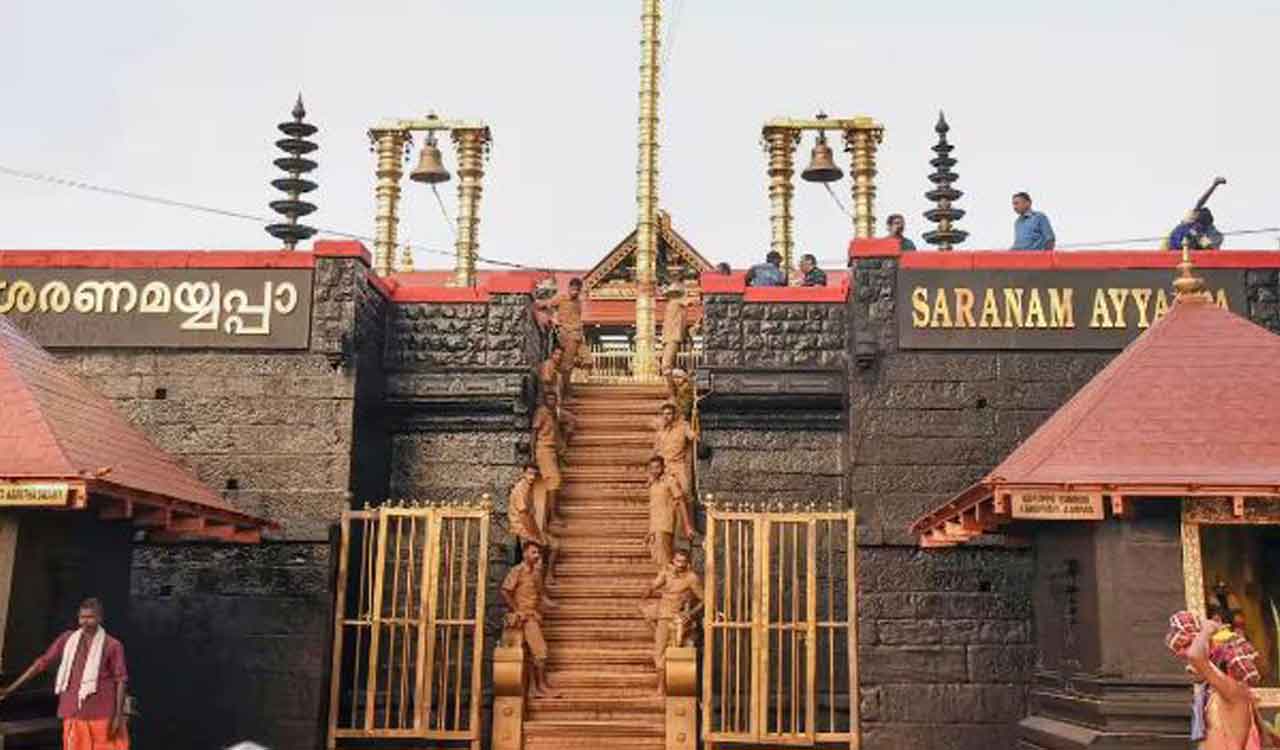Kerala, Karnataka issue health advisories for Sabarimala pilgrims amid brain fever concerns
Kerala and Karnataka have issued health advisories for Sabarimala pilgrims amid recent amoebic meningoencephalitis cases. Devotees are advised to avoid water entering the nose, maintain hygiene, carry medications, and seek medical help for any symptoms. Emergency services are deployed along pilgrimage routes.

Hyderabad: With the annual Sabarimala pilgrimage season beginning, health authorities in Kerala and other States have issued advisories to Sabarimala devotees, with special emphasis on preventing water from entering the nose in the wake of amoebic meningoencephalitis (brain fever) cases reported in the State.
The advisories urged pilgrims under medical treatment to carry their records and medicines, with the said regular medications not to be discontinued while preparing for the pilgrimage.
“Devotees bathing in rivers should ensure that no water enters their noses,” the Kerala Health department’s advisory said. Even though the advisory did not specify the reason for caution about bathing in rivers, a similar directive was issued when Kerala recently witnessed frequent cases of brain fever.
Mild exercise, such as walking, has been recommended in the days leading up to the pilgrimage to avoid exertion-related health issues. Pilgrims have been advised to climb slowly, take breaks, and seek medical assistance if they experience fatigue, chest pain, breathlessness or weakness. For emergencies, they may contact 04735 203232.
The advisory also instructs devotees to drink only boiled water, wash their hands before eating, consume washed fruits and avoid stale or exposed food. Open defecation has been prohibited, and toilets must be used with proper handwashing afterward. Waste should be disposed of only in designated bins. In case of snakebite, pilgrims have been asked to seek immediate medical care, as anti-venom is available in hospitals, the advisory said.
Kerala’s Health Minister Veena George said in a statement that doctors from medical colleges and trained volunteer health workers were deployed along the pilgrimage routes. A 24-hour control centre will also function at Pampa.
“Pilgrims experiencing any discomfort while climbing are advised to seek immediate treatment at the nearest health centre. Awareness materials have been prepared in multiple languages, including Malayalam, English, Hindi, Tamil, Telugu and Kannada,” she said.
Emergency medical centres have been set up along the route from Pampa to Sannidhanam, and Konni Medical College will serve as the base hospital. Emergency cardiology services and a cath lab have been made operational at the Pathanamthitta General Hospital. Ambulances equipped for cardiac emergencies will also be available, along with a special ambulance service between Sannidhanam and Pampa, the Minister said.
All hospitals will be equipped with defibrillators, ventilators, and cardiac monitors. Fully equipped laboratory facilities will be functional at Nilakkal and Pampa, and operation theatres will operate at both Pampa and Sannidhanam (temple complex), she said.
Health officials said a temporary dispensary has been set up at the Pandalam Valiya Koickal Temple. At least one medical store each in Adoor, Vadasserikkara and Pathanamthitta will remain open round the clock.
The Food Safety Department has formed special squads to carry out inspections, and health cards have been made mandatory for staff in food establishments, they added.
Meanwhile, the Karnataka government also issued guidelines for Sabarimala pilgrims, mentioning the cases of amoebic meningoencephalitis or brain fever caused by the Naegleria fowleri microorganism, commonly known as the ‘brain eating amoeba’.
The Commissioner of the Karnataka Health Department stated that Naegleria fowleri is a free-living amoeba typically found in warm freshwater and sand, such as stagnant water, puddles and swimming pools. The infection does not spread from one person to another, nor does it occur by drinking contaminated water. Naegleria fowleri is a highly virulent microorganism, and when water containing the amoeba enters the nose, it can reach the brain and cause the rare and often fatal condition of amoebic meningoencephalitis.
During the pilgrimage, pilgrims were advised to ensure that water does not enter the nose while bathing, with the use of nose clips recommended. After exposure to water, if an individual develops symptoms such as fever, severe headache, nausea, vomiting, neck stiffness, altered mental status or behavioural disturbances, they should immediately seek medical attention at the nearest government hospital without delay, the advisory stated.
Nearly two lakh devotees arrived at the Lord Ayyappa shrine at Sabarimala in Pathanamthitta on Tuesday within 48 hours of the temple opening for the annual ‘mandala-makaravilakku’ pilgrimage season. Large crowds of devotees packed the pilgrimage route from Pamba, the foothills of Sabarimala, to the Sannidhanam, with many facing hours-long delays in climbing the path.
According to an official statement, on November 16, the day on which the temple opened, 53,278 pilgrims visited the shrine. Heavy rush at Sabarimala is leading to chaos as queues for ‘darshan’ stretch up to 10 hours, according to local authorities.
Related News
-
Odisha government reviews protection of Lord Jagannath temple lands
3 hours ago -
Iran holds military drills with Russia as US carrier moves closer
3 hours ago -
This is taxpayers’ money: Supreme Court raps freebies culture
4 hours ago -
Hyderabad: Residents oppose Gandhi Sarovar Project over ‘forcible’ land acquisition
4 hours ago -
Australia level series as Indian women slide to 19-run defeat in second T20I
4 hours ago -
Karnataka beat Uttarakhand in semis, to face Jammu and Kashmir in Ranji final
5 hours ago -
Five Osmania varsity players in South Zone squad for Vizzy Trophy
5 hours ago -
Disciplined West Indies bundle out Italy with ease, tops Group C in T20 WC
5 hours ago




